The following post is Part 1 of a 3 part series. The events occurred in August, September and October of 2016 and are being published now as all charges against me in the DAPL water protection recently have been dropped. These post are longer in length because I believe the whole story needs to come out. While the story is about my experiences, it is really about the bigger issue of climate change and fighting against a military and corporate based system that is poisoning the earth. It is also about indigenous rights and about a change in direction for America.
Heading West:
There are a dozen small voices telling me why my trip makes no sense. Each is reasonable in itself. It’s been less than 12 hours since I got off the plane from Climate Reality (Houston). I have to cancel three appointments next week, including a trip to see my wife, kids and grandkids. I have a migraine from lack of sleep. Did I buy a carbon offsets? I am too old for this. Together they form a litany that says stay home. Mostly they mask fear. But there is another voice that is whispering softly, “Just go… just go.”
I think perhaps that I am living my life backwards. To go 500 miles to protest the Dakota Access Pipeline with the Lakota seems like younger work. The pipeline will move 500,000 barrels of oil per day when in production. Forget keystone. This is, as always, about money. Forces are lined up on one side like Goliath. There are the billions of tons of CO2 that are slowly cooking us, and ignored treaty rights on the other. The state is spreading rumors about costs, and the threat of violence in order to discredit the First Nations. Roads are being blocked. Drones are flying overhead. The short-term risks are real, a dozen people have been arrested so far. And so are the long-term risks for humanity. For me, I’ve always done the right thing with a small “r”, now I am learning late that perhaps I can do something Right with a large “R”. So I release my mooring and pull out of my garage. I am heading west.
The plains are green and rise up with the sky. Momentum carries me now. I pass a coal train coming at me from the Powder River area. Minnesota has just lost a lawsuit to force North Dakota to only provide electricity for purchase from clean sources. They won’t appeal. Yet I am fighting a strong headwind. I am in the Saudi Arabia of wind, but don’t see a single wind turbine. A little later I see a bald eagle and try to tell myself that it’s a sign. Do I believe in signs?
My daughter texts me and asks if I’m going to get arrested. This isn’t helping. I don’t want to be arrested. I am afraid of being arrested. I answer her carefully, “Perhaps, but not likely.” Finally, I head south from Bismarck into the Missouri Breaks. I don’t know where I am going, only toward Standing Rock reservation, when I come to a roadblock. There are six state patrol cars with lights flashing, hunkered next to concrete barriers. I count 12 patrolmen. The one that has his hand up for me to stop is wearing his best ‘Smokey’ glasses.
“Where are you going?” he asks. I am thinking it would be ironic if I was turned back now, but I answer his question with questions of my own. “Why do you ask, and what’s the problem?” It gives me a second to think. Should I be brave and tell the truth and be turned back, or should I lie and find a way around. “The road is closed. Where are you going?” I sense no point in pushing, so I rely on my white privilege and lie. “I’m going to the casino,” I say, hoping they have a casino. He seems relieved, “Oh? OK! Then just take the 138 detour.”
The sun is beginning to set. The rolling grasslands start to glow. I try to follow my GPS to the town of Cannonball and tribal headquarters. Old Cannonball is five trailers spread across miles along the Missouri. There appears to be a school, but it is surrounded by barbed wire. On a hill above the road are two dozen other buildings. Standing Rock is yet another ignored and impoverished reservation. A man on a riding lawnmower points me toward the protest. He says, “Go to the end of the road then head northwest.” Some fate delivers me to Sacred Stone Spirit Camp.
Sacred Stone Spirit:
I talk to a woman named Susanita from Oklahoma, and she invites me to camp with them. I learn that Sacred Stone Spirit is a prayer camp. I don’t know what this means. I’m not sure I know how to pray. I pitch camp and fall asleep to crickets, frogs and drums.
In the morning I wander into the kitchen and meeting area. I realize I am one of the few whites in the camp and feel somewhat out of place. This isn’t a Dances with Wolves thing for me or some patronizing anthropology study in romantic native culture. Security at the camp has told me “No pictures.” In the night I was awakened by drones flown over the camp by who, the “Feds?” I get asked frequently three questions, “What is your name, where am you from, and why are you here?” The last one is simple, “I am here for my grandchildren.” I understand trust takes time.
The Land:
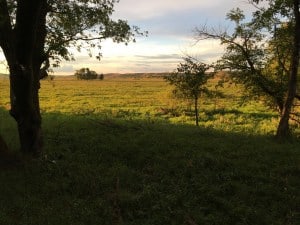 The land is heartbreakingly beautiful. A valley, a river, rolling hills, grass and woodlands. White herons in the water, hawks in the sky, and always a strong breeze. I walk along the Cannonball River and come to Red Camp which is on BLM land. Or so the BLM claims. The tribe owns the mineral and other rights according to an old treaty. But the governor is asking the Feds to declare an emergency. I learn then that the National Guard can be used. People locked up indefinitely.
The land is heartbreakingly beautiful. A valley, a river, rolling hills, grass and woodlands. White herons in the water, hawks in the sky, and always a strong breeze. I walk along the Cannonball River and come to Red Camp which is on BLM land. Or so the BLM claims. The tribe owns the mineral and other rights according to an old treaty. But the governor is asking the Feds to declare an emergency. I learn then that the National Guard can be used. People locked up indefinitely.
Red Camp is the protest camp. It has swollen to 1,000 plus people and stretches across the valley. I imagine that while smaller than the Sitting Bull and Crazy Horses camp in the Powder River over a hundred years ago, it is still a sight. White tipis are surrounded by colored camping tents with flags from over 60 tribes around the country. Horses are grazing in the field and watering at the river. Kids are playing, songs and drums float across the water.
The People:
There is a main camp kitchen being run 24 hours a day. Camp headquarters is where announcements are made. I am sitting there next to an old woman when the grandson of General Harney comes to the microphone. He is white. He speaks for ten minutes. He has been working for fifteen years to change the name of Harney Peak in South Dakota. His grandfather led a genocidal attack on innocent men, women and children in the late 1800s in the area. He announces that after many years he and others have convinced the government to rename Harney Peak to Black Elk Peak. A crescendo of ululation builds from the crowd. When I look at the woman next to me, she is crying.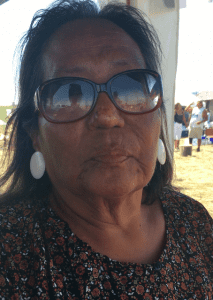
I walk up to the blockade site. A fence is draped with dozens of flags of tribes from around the country. I help a couple from Hawaii hang their flag along with the others. The gate is unlocked. I ask someone if I can go up to the site. He says it’s OK, but there are armed guards from the pipeline company protecting the equipment. I walk through the gate and follow the torn earth over a hill. Four giant yellow grader machines sit at the end of dirt. I realize I am angry, so I sit 50 yards away in the grass for a while.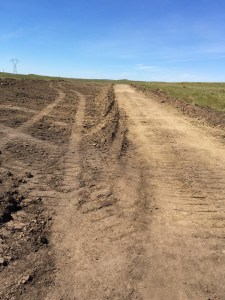
Then I walk over to the guards. I don’t what I am going to say. I introduce myself. I begin to tell them my story. One listens with a smirk. Another is engaged. The third is silent. The engaged one tells me if there is oil in the ground then it’s there for a purpose. To take it out. He holds up his sunglasses, “Otherwise we wouldn’t have plastics and stuff. So we might as well take it out.” I realize we are having a conversation. He comes from Florida, the silent one from Texas. The smirk doesn’t say. I mention Texas and how they are leading the country in solar and wind. Maybe we don’t need the oil. I point up at the sky. It looks limitless I say, but you can’t live just four miles up. It doesn’t go on forever. Can we just keep dumping our waste in the air? It doesn’t seem like we can sit in a garage and leave the motor running? The conversation begins to end. Maybe I’ve gone too far. They are quiet. But I ask them one last question. What would they suggest I tell my grandkids? They don’t have an answer. I thank them for the conversation and say goodbye, then walk back down the hill. Now I am crying.
Over the next couple of days, I meet people from all over (names changed for privacy and security). There are too many to go into detail but I am struck by a few. I meet a cheerful woman named Killer. She laughs a lot. Then Lita Braveheart, she would like a shower. Oyupota (Claw) and Wawakan (Sacred Spear) are members of AIM. All are generous to a fault.
I mention this to a man I meet named Clint, an Omaha tribe Native American who was raised by Mormons. He says that’s because this is their way. Clint is not an elder, but he takes me under his wing. He doesn’t treat me like a child though I sometimes feel like one. I resolve to listen. I am ignorant. I want to understand what is going on here.
He patiently tells me not to point at anyone because “We don’t want them to think we are talking bad about them.” “We don’t say ‘How are you?’ because that seems nosey. We say, ‘Nice to meet you.’ We don’t use our ancestor’s names because it calls them back.” He shares his campfire and invites me to a sweat. “When you enter, you say ‘Ho Mai Taki Assen.’” To honor your ancestors. “We are the future ancestors of our children,” he says. He has twelve. “That is why we are doing this.” And finally, “You know you don’t have to lock your car?” I feel a little foolish.
One day I am sitting next to an older Lakota man. He is talking to a younger white guy. Dennis Banks has just spoken. Dennis Banks is angry. The old man is upset that there are so many agendas. “This is a prayer camp,” he says. “If we do things like go to the site, it violates our prayers. We are the ones that will be here when everyone leaves. They will blame us. We will have to pay the price.” At that moment I have a small revelation. Yes, I am an outsider here. But I say to him, “I have grandchildren too.” I believe that everything is connected. People, the earth. I am wondering if I can do more good back home.
My Cannon Ball River Rubicon:
With no cell phone reception, I forget what day it is. One morning Clint says, “OK, do you have a blue shirt? Put it on. Take everything out of your pockets except for your driver’s license. That way you can make bail faster.” There is going to be an ‘event.’ So I put on my blue shirt. I didn’t come to be arrested. But maybe this is why I’m here.
We walk along the river from Sacred Stone Spirit to Red Camp. It’s a hot day, but cooler in the trees along the water. Kids are fishing. It seems very peaceful. Everyone I’ve met has said, “This is peaceful, we are praying.” But yesterday, they ran a drill to get the women and children out of the camp in an emergency. From Red Camp, we walk up to the gate. The event doesn’t happen. I don’t know if I am relieved.
That night I speak with LaDonna, upon whose land the camp sits. I ask her if I can video her. This is what she says.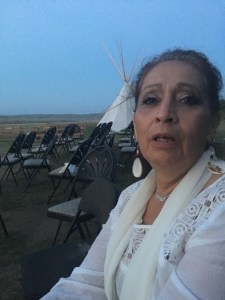
“Good evening, my name is LaDonna Bravebull Allard, I am the owner of of the land that Sacred Stone Spirit camp is located on. We established this camp in April to do our best to pray to stop Dakota Access Pipeline. This pipeline is located right off our land and we are looking for ways to change the attitude of how people look at pipelines and oil. For us the most important thing in our lives is water. We can not live without water. Water is the essence of life. Without water, nothing lives. No humans live, no animals live, no plant lives because we need water. And so if this proposed pipeline goes through right across from our land, it will destroy our water. It will destroy everything that’s beautiful here. And so I am asking anybody who is willing to stand with us, to say that water is important, to come stand with us. If you are in your own areas, to please pray for us. If you can, please help us. Right now we have a couple thousand people here. So we need help with water, food, camping skills. Like sleeping bags and blankets and tents. What has happened here is overwhelming and amazing. It’s not about native people, it’s about all people. Everyone is coming together. This is so healing for everything we have in this country. We need to stand together to change the world.”
I tell her, that the best way I can help is to go back and work with the people I know. I think maybe I can help get the message out. That I will be leaving camp in the morning. I thank her for what she is doing.
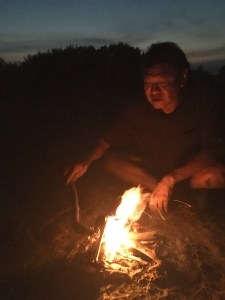 That night I am sitting at a small tattered fire with Clint. I tell him that I don’t know how to pray. I believe everything is connected, but I don’t know how to pray. He says, “That’s easy. All you have to do,” he pauses and sweeps his hand across the earth, “is just talk. Say what’s in your heart.”
That night I am sitting at a small tattered fire with Clint. I tell him that I don’t know how to pray. I believe everything is connected, but I don’t know how to pray. He says, “That’s easy. All you have to do,” he pauses and sweeps his hand across the earth, “is just talk. Say what’s in your heart.”
I look up. The stars are achingly close. If a dozen voices can silence me, then maybe a thousand voices, or a million voices, can save the world. I have no choice. I ask for help.
Savor the Earth! We are all connected.
Hobie,
L. Hobart Stocking
SkyWaterEarth.com
hobart@skywaterearth.com
651-357-0110
Facebook: @SkyWaterEarthConnected
Twitter: @SkyWaterEarth

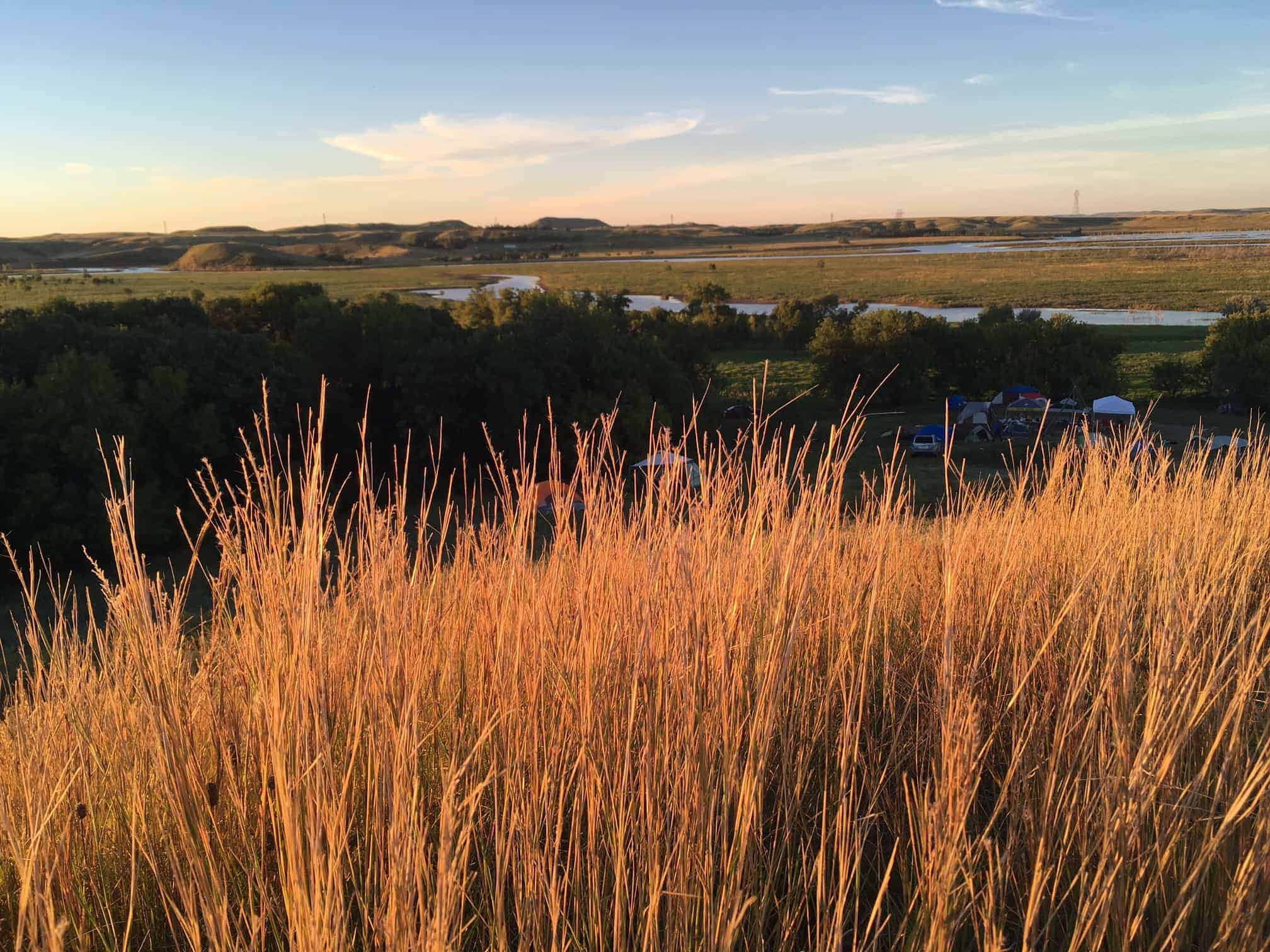
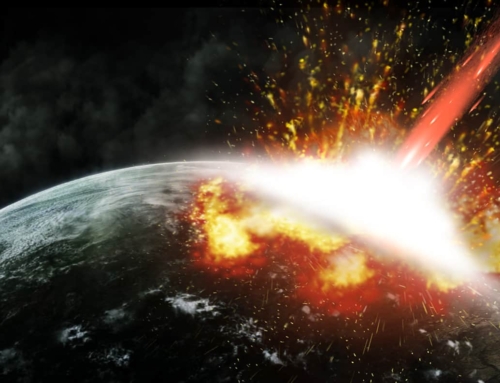
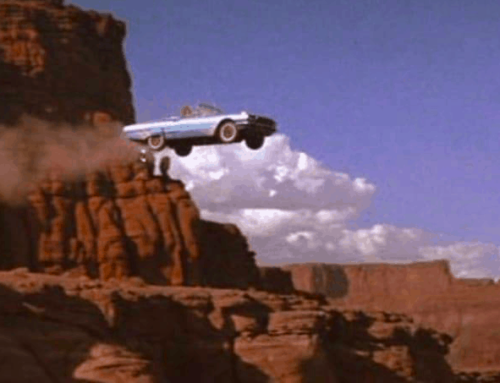
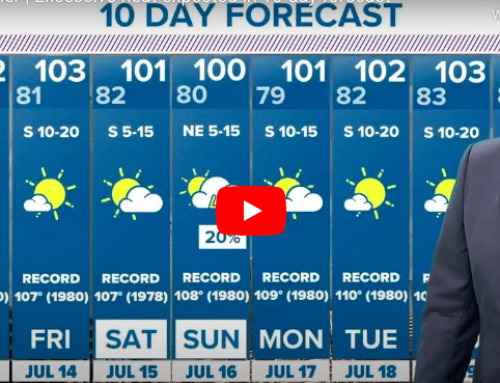
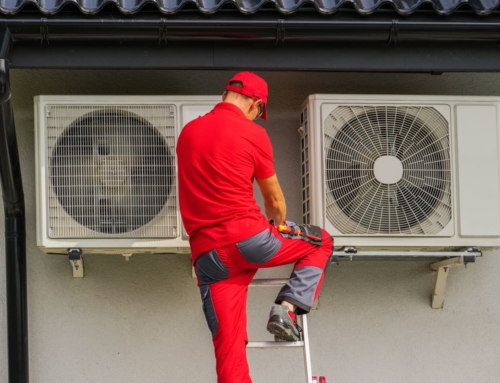
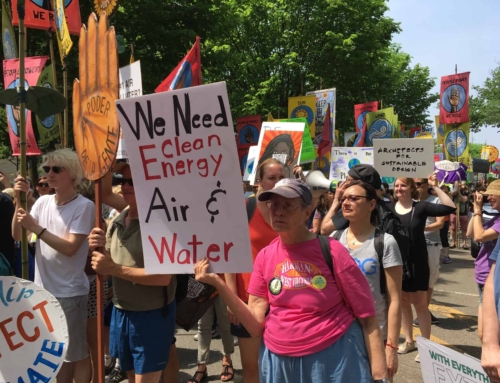
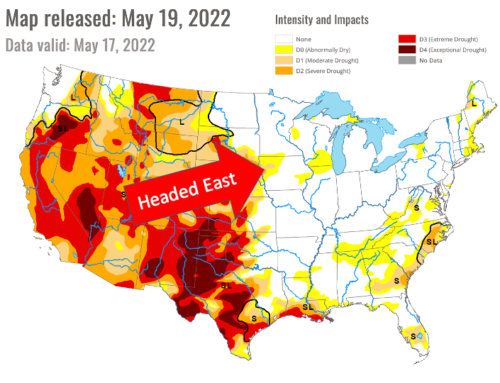
Leave A Comment